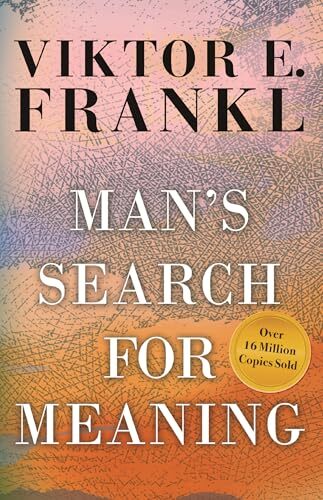
I found this to be an interesting and occasionally powerful read—it’s hard to not be moved by depictions of the holocaust—but I was particularly busy when I read this, didn’t take notes, and now trying to write the review a couple of weeks later, I’m realizing that much of the book’s has faded from memory. That’s partially on me, for not having a great memory, but also a bit of a bummer that the book’s message isn’t more sticky.
The core ideas I do recall:
The search for meaning
- The main motivational force in people is finding meaning in their lives. This is the key idea of the whole book.
- You can always find meaning, even in the most dire of circumstances.
Surviving a concentration camp
In the first part of the book, Frankl talks about how he ended up in a concentration camp, and how he and others survived it.
- Having something to live for. One of the core ideas that stuck out to me was that having something to live for was essential for the survivors. You can find meaning in work/deeds, in love/people, and in suffering.
- There’s meaning even in suffering. Note that this is not an invitation to seek suffering—suffering is horrible and in and of itself meaningless—but merely that if suffering happens, you can give it meaning based on how you react.
- You always control how you react. This is one of the things that can never be taken away. The outside world can take away everything, including all possessions, all loved ones, and all control, but you’ll always have the freedom to choose how to respond.
Logotherapy
In the second part of the book, Frankl talks about logotherapy, a psychotherapeutic approach that he developed.
- It’s about searching for meaning. The main focus of logotherapy is that the search for meaning is the main motivational force in life.
- Finding meaning even in loss. A man comes to Frankl who is deeply depressed over the death of his own wife a few years ago. Frankl asks the man how his wife would’ve felt if their roles were reversed, and he had died first. The man responds that his wife would’ve suffered terribly if that had happened. Frankl tells him that the meaning in his suffering is to spare his wife of that same suffering.
- You sometimes have to seek the opposite. Certain things that you deeply want cannot be obtained by expending more effort, but only by ignoring them, or even expending effort to obtain the opposite. For example, if you have trouble sleeping, trying really hard to fall asleep won’t help. Instead, you should try to do the opposite and stay awake; this relieves the anxiety with that condition and allows the person to finally fall asleep.
